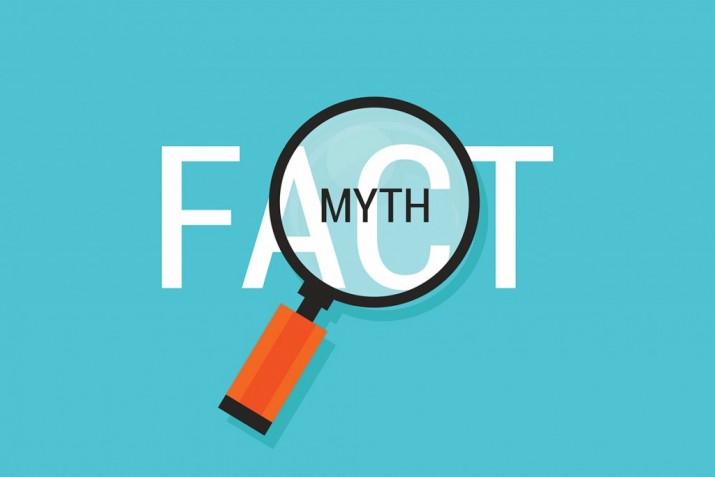In contrast to brick and mortar stores ecommerce marketing presents an exclusive set of challenges. Although there are more consumers shopping online, there are even cases where they would prefer to walk into a store and actually see the item personally. This is a major obstacle for ecommerce marketers to jump; they must produce a welcoming, personal experience that will trump any need to make a purchase decision in a retail store.
With the prevalence of technology, information is easily accessible to everyone and the pressure now, is on businesses to provide the best possible products and services to customers. Customers, today, are spoilt for choice and there are a huge number of options out there for them to select from. So when you can grab someone’s attention utilize that as best as you can to make a sale.. If you don’t, they’ll simply find another place to shop from.
There are many misconceptions prevalent in the commerce industry that doesn’t allow inexperienced ecommerce entrepreneurs to grow their business. We’ve debunked some of these myths below.
Myth #1: Once your website is setup, the traffic will come Automatically
Reality:
Unfortunately, this is a common misconception among the ecommerce newbies while setting up their website. They think that ecommerce is just about getting a domain and setting up a storefront. But that’s just pipedream. There are thousands of competitors in any ecommerce niche. Hence, without promotional campaigns and active marketing you may finish up with no sales and a failed business.
An ecommerce website without active marketing (SEO, Search Ads, Social media, etc) is as good as not having a website at all.
Myth #2: Revenue is the most critical metric to measure
Reality:
There are some web metrics that give a better picture of where your company is situated in your industry and in the minds of consumers. Focusing on your pay per clicks, conversion rate, and bounce rate are some of the few statistics that will give you a more realistic picture. By not considering these metrics, you could be ignoring the fact that your website is badly designed or you aren’t developing engaging content that captivates prospective customers; or maybe your landing pages are not persuasive enough for people to fill out a form or download a special offer.
Myth #3: Mobile consumers do not convert
Reality:
Mobile is responsible for the recent years’ increase in online traffic. In mobile internet usage has now overtaken desktop usage and the same applies for ecommerce as well. If your website is not optimized for mobile or you don’t have mobile commerce options, your business will lose out to your competitors. E-commerce sites like Amazon and eBay bring in huge numbers of mobile sales every day and there’s no reason why you shouldn’t too. For better conversion you just need to optimize your site for mobile as best as you can.
Myth #4: My business is too small to sell globally
Reality:
The best thing about ecommerce business is that it helps you go beyond geographical restrictions. With an ecommerce store you have the ability to sell your product anywhere & anytime globally. It is obvious that your warehouse location is very important, if you are selling perishable goods. But for non-perishable items you can shipping them anywhere with global shipping partners like Fedex.
Myth #5: Content marketing is waste of time
Reality:
Many SMB owners believe that their work is done once their website is launched. But, you need fresh & qualitative content consistently to help your search engine visibility and continue targeting your audience. Content marketing is simultaneously linked with SEO campaigns, enabling you to reach out to search users. With a proper content marketing strategy you can not only increase your search rankings and generate sales but also enhance your brand visibility.
Myth #6: Negative Online review may destroy your business
Reality:
Every business faces criticism once in a while. In the online world criticism comes in the form of negative online reviews. But negative reviews don’t mean the end of the world. You should take negative reviews as an opportunity to improve your products and process and educate other users about how considerate you are in acknowledging negative feedback and acting upon it. Dealing with negative comments/reviews the right way can increase your brand credibility.
Myth #7: Running an online business is much cheaper than a real world store
Reality:
Running an ecommerce business is as costly, if not more, as running a brick-and-mortar store. Ecommerce is much more than just a catalog. It also involves supply chain management, shipping, warehousing, extensive marketing, etc Costs for managing all these is significant. So don’t get into ecommerce because it’s cheaper to start. It’s not.
Conclusion
As a business owner there are lots of things to balance, and it’s imperative that you don’t fall for common myths about managing your online presence. The most important thing to keep in mind is that online shopping is an experience. If you are providing an experience people love you will have a profitable business.
To achieve the success in the ecommerce world, build a web presence that’s welcoming, instructive, and personal. Develop your site with strong content that invites and excites, and take some time in choosing the platform software that best fits your business model. If you look closer such things are likely to make you more credible and trustworthy, which will help you build a long lasting business.



